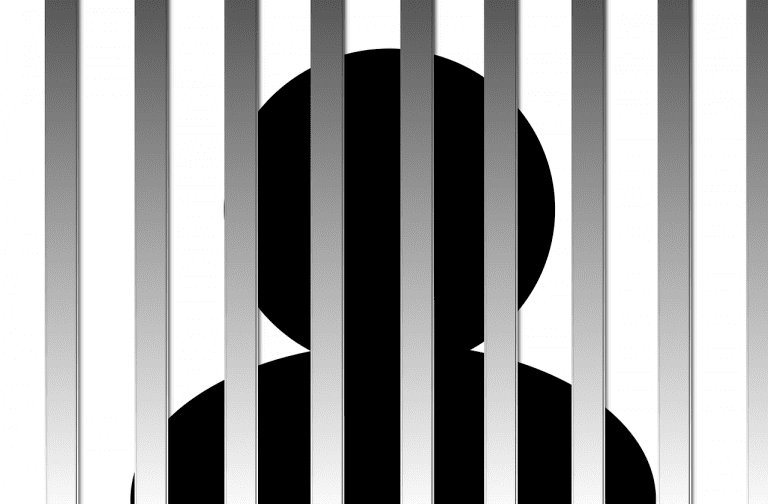Indeed, the very concept of punishment has been fading from child-raising, education, ethics, and theology. Hardly any pastors, including from conservative church bodies, teach about eternal punishment anymore. Our sensibility today recoils from it. Which was not the case not long ago. The Deists rejected Christianity and all revealed religion in favor of, supposedly, a religion of reason and reason alone, but they retained the notion of rewards and punishments after death, which they believed was essential to cosmic justice and a moral order.
The criminal justice system still employs punishment. But a new cause on the left calls for abolishing prisons and judicial punishments altogether. The self-described “abolitionists” also want to abolish police and the criminal justice system altogether, replacing them with “getting people the help they need.”
Read this sympathetic article on the movement in Politico by Ruairí Arrieta-Kenna, Abolish Prisons’ Is the New ‘Abolish ICE’: A growing group of leftists wants to get rid of the entire prison industrial complex in America. Read it all, but here are a few excerpts:
At first blush, the idea might seem fringe and unreasonable; where, for instance, would all the criminals go? What happens to rapists and murderers? But the movement’s backers counter that it is the only truly humane direction we can head in as a society—that is, if we really aspire to live in a world rid of interpersonal harm and racial inequality. And they might actually be making headway. . . .
[Maya] Schenwar argues, “abolition is the acceptance of an understanding that prison does not work to any good ends.” “It works to uphold white supremacy; it works to uphold capitalism; it works to uphold oppression; but it doesn’t actually work to keep us safe or to protect society in any way that is productive.”. . .
In 2015, the National Lawyers Guild adopted a resolution in support of prison abolition, and today, the abolition of police and prisons is one of the platform tenets of the Democratic Socialists of America—the growing leftist group that fiercely backed Ocasio-Cortez. . . .
Historian Harry Elmer Barnes estimated in 1921 that the advent of prisons as the conventional response to crime in the United States happened sometime during the 18th century as a result of reformists campaigning against corporal punishment.
“The system that we currently have is supposed to be more humane than if we just tortured someone,” Wilson says, “but we’re just torturing people in a different way.”
The most fundamental issue with retributive justice, pretty much every abolitionist I spoke with tells me, is that it dehumanizes people who have committed crimes. Rather, they believe, as DSA’s Bianca Cunningham puts it, “that we should be implementing policies that are treating people like human beings that make mistakes and not like animals.”
“We have come to think of murderers, rapists, child molesters,” Shehk says, “as deviants that are just kind of running wild, as though these people are not our brothers, our sisters, our uncles, our neighbors, etc. And this kind of demonization and flattening of people works to reproduce the narrative that there are people that are deserving to be locked in a cage even for life.”
“I think we can live in a society that is based on mutual support and love instead of punishment and prison. That is not a radical thing,” Carlton Williams, an abolitionist lawyer in Boston, tells me, adding, “but that’s the most radical thing you can ever say in the world.”
It’s true that large-scale penitentiaries are relatively recent inventions. But that’s largely because of the decline in capital punishment. Death used to be the penalty for just about anything, not just for murder and rape but for theft. In Victorian England, children were being hanged for stealing handkerchiefs. (Sometimes a thief might be flogged or put into stocks or branded so as to keep track of whether there were multiple offenses. But repeated thievery would get you hanged. Another alternative to hanging became transportation: Criminals could be exiled to the other side of the world: To Australia, where they would live in prison camps for a certain number of years, then stay as colonists. Or, in the days before the Revolution, to America.)
The “penitentiaries” grew out of an attempt to reform criminals by making them “penitent.” But that presupposes religion. Now we just lock prisoners away. An unintended consequence is that those who are locked up are often not changed by the experience, so that they often offend again shortly after completing their sentences.
But the prison system is designed not so much to rehabilitate convicted felons as to protect society by locking away people who threaten it.
The need for prison reform is one of the few remaining bi-partisan causes. Conservatives with libertarian leanings worry about the state abuse of power, especially in long sentences for minor crimes. Christians in particular have gotten active in prison ministry and are having some dramatic successes.
But prison abolitionists go much further than prison reformers.
Any ideas for a better way of doing it?
As for theology, if God does, in fact, punish sin, and if there is, in fact, a Hell where sinners are punished eternally, it doesn’t matter whether human beings like the concept or not. If there is such a place as Hell, we would do well to find how to escape it. And we will find the message of forgiveness through Christ’s atonement good news indeed.
Illustration by KERBSTONE, via Pixabay, CC0, Creative Commons














